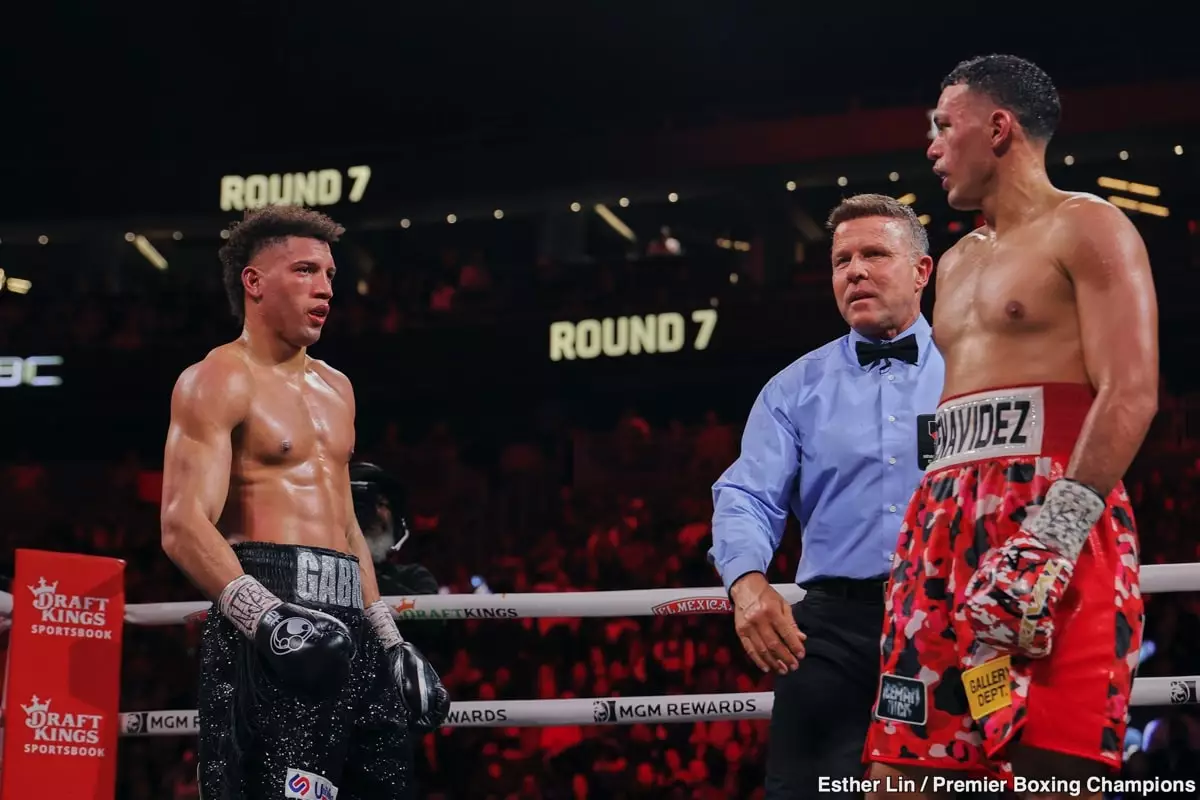David Morrell enters his upcoming showdown with Imam Khataev under a spotlight heavier than most. After suffering his first career defeat last February against David Benavidez, Morrell is at a pivotal crossroads. This July 12th light heavyweight clash at Louis Armstrong Stadium in New York isn’t just another fight—it’s potentially a make-or-break moment. The challenge is enormous: Khataev, an undefeated 2020 Olympian with a reputation growing almost as swiftly as his knockouts, is frequently compared to the feared Artur Beterbiev. For Morrell, this means he’s not just fighting for a win but striving to validate his readiness to contend at the highest 175-pound level.
The Lessons and Pitfalls of Past Defeat
Morrell’s loss to Benavidez was a tactical battle he might have won had he adapted more effectively mid-fight. He has publicly acknowledged the experience and lessons gained but admits only slight tweaks would be necessary to improve for a potential rematch. However, this perspective is somewhat optimistic, possibly understating the systemic issues Morrell faced. His struggles with punch volume and output, noted not only against Benavidez but also in his prior bout with Radivoje Kalajdzic, reveal a deeper challenge. Morrell’s knockout power at super middleweight did not seamlessly transition to light heavyweight; his once-powerful solitary punches now lack the same decisive impact, demanding a more strategic approach.
A Tactical Overhaul Is Imperative
Simply relying on the raw knockout power that characterized Morrell’s earlier career is insufficient against Khataev, who boasts an aggressive style and a polished amateur pedigree. Morrell must shift his focus toward increasing punch volume and employing a more nuanced game plan that can neutralize Khataev’s strengths. Failure to do so leaves him vulnerable to being outworked and outpointed, as he was by Benavidez. Morrell’s previous bouts suggest a tendency to underdeliver in terms of sustained offense—an aspect that will only be exploited by a fighter like Khataev who applies relentless pressure.
Capitalizing on Khataev’s Vulnerabilities
While Khataev’s power and ring generalship are impressive, his recent fight with Durval Elias Palacio exposed stamina and durability concerns. Palacio, a non-contender, inflicted considerable punishment on Khataev, demonstrating that although the Russian punches hard, he struggles under sustained fire and may be susceptible as fights progress into the later rounds. Morrell’s ability to exploit this weakness could be the key to victory. If he can weather the initial storm and stay composed, outlasting Khataev’s early aggression, he has a chance to take control as the fight unfolds. This demands Morrell not only improve activity but also demonstrate smarter defensive skills and ring intelligence.
The Stakes and the Spotlight
Being part of Turki Alalshikh’s high-profile DAZN PPV card puts an extra layer of pressure on Morrell. A victory would reaffirm his trajectory as a rising light heavyweight contender capable of overcoming setbacks. Conversely, a loss could stall or even negate the momentum he has built since turning pro. Morrell’s words suggest confidence and readiness, but confidence alone will not secure this win. He needs to demonstrate that he has evolved beyond his last outings, addressing flaws that have hindered his progress.
An Opportunity for Redemption and Reinvention
Morrell acknowledges Khataev’s aggressive approach and extensive amateur background, indicating that he has done his homework. The success of this preparation hinges on whether he can translate it effectively into the ring. This fight offers Morrell more than a chance to rebound—it provides an opportunity to reinvent his style, focusing on higher output and tactical discipline that can neutralize his opponent’s approach. Success here requires a maturity and adaptability that Morrell has yet to fully display. If he can rise to this challenge, he will not just be “back,” but firmly on his way to becoming a serious contender in a deep and talented division.

